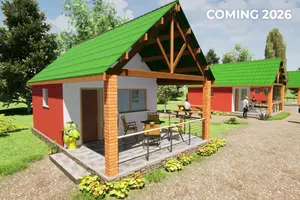

Lemur Research Project in Madagascar
Volunteer on this one-of-a-kind Lemur Research Project in Madagascar and help protect lemur species on the brink of extinction.
Speak To A Travel Expert
Activities
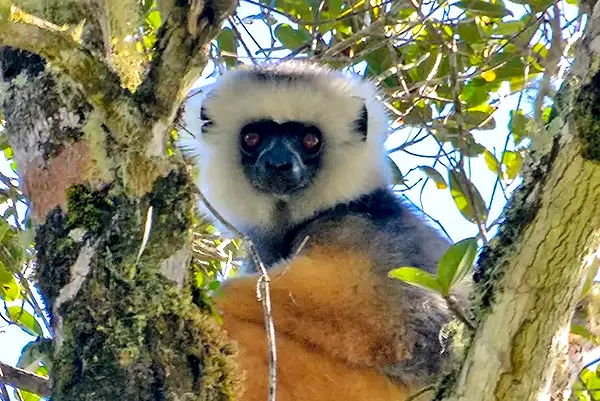
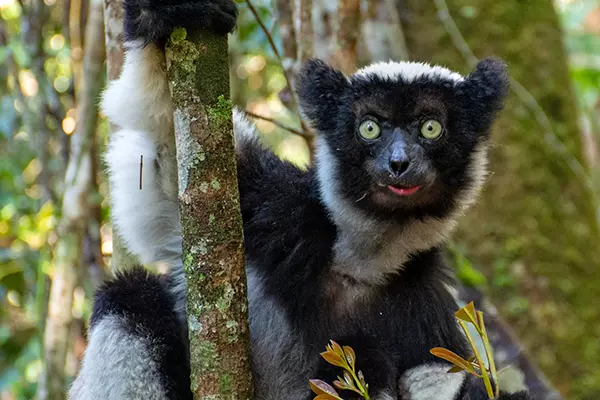
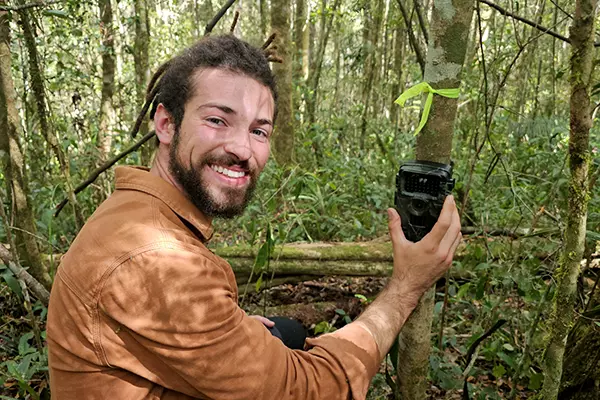
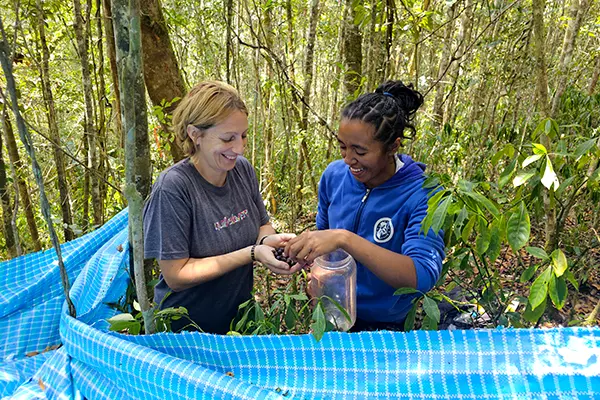
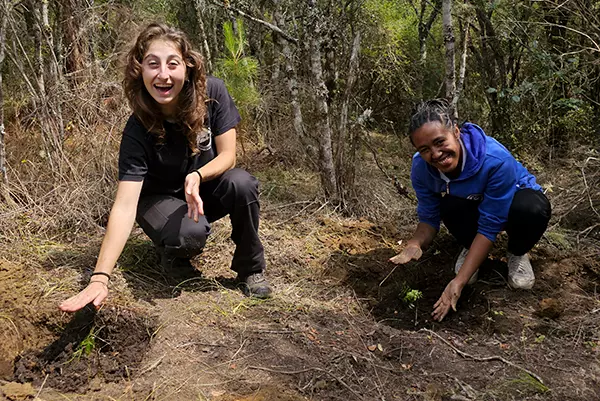
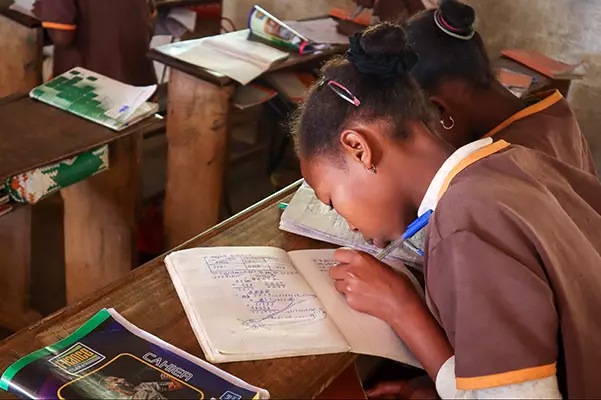
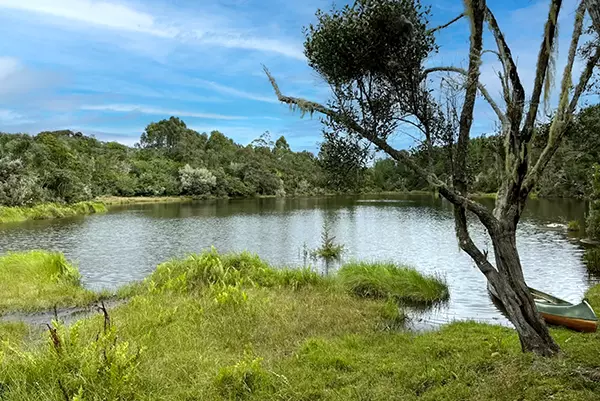
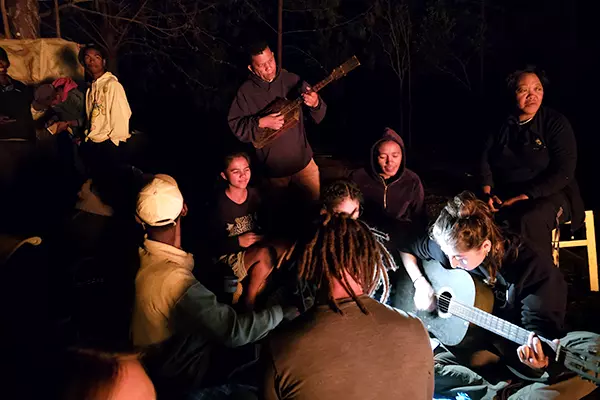
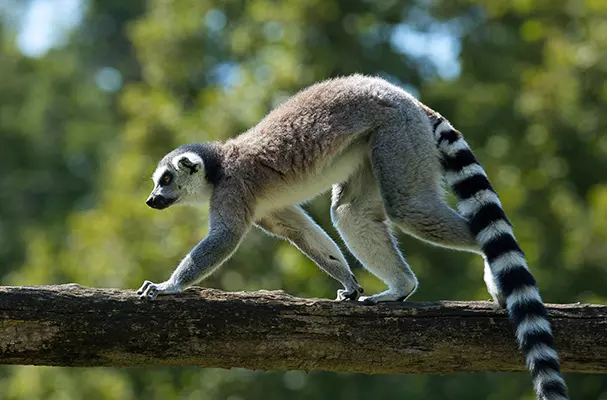
Itinerary
Below is an example of a two-week itinerary. Please note, some activities may be subject to change depending on the needs of the project.
Durations & Prices
Accommodation
Volunteer Accommodation
During your stay, you'll be accommodated in one of four stunning new chalets, purpose-built for volunteers within the forest! The chalets are allocated on a twin-share, same-sex basis (unless travelling as a couple) with an en-suite bathroom featuring Western facilities and warm showers, perfect after a day of trekking. The newly renovated field research station is right next door, which will provide you with everything you need for a homely yet exciting stay, including a welcoming social area, an open-air kitchen and dining space, and Wi-Fi. Welcome to the most comfortable accommodation of any lemur research project, where community and conservation come together!
Meals & Beverages
Three meals a day are provided and prepared by a local cook, so you'll get a taste of authentic Malagasy cuisine throughout your stay. Along with a few Western dishes for some home comforts, too! Expect hearty, home-cooked food made with fresh, local ingredients, perfect fuel for your days in the forest. Vegetarian, vegan and other dietary requirements can be catered for, just let the travel team know of any before you leave. Drinking water, coffee, and tea are readily available on-site, and a small selection of snacks and alcoholic drinks is available to purchase at the field station. You're also welcome to bring along any favourite snacks or beverages for between meals.
Project Details
When is the best time to volunteer?
The project runs from May to October, coinciding with the dry season, which is generally considered the best time to visit Madagascar. During this period, you’ll enjoy less rainfall and more sunshine, with temperatures ranging from highs of 19°C to 25°C (66°F - 77°F) and lows of 10°C to 15°C (50°F - 59°F).
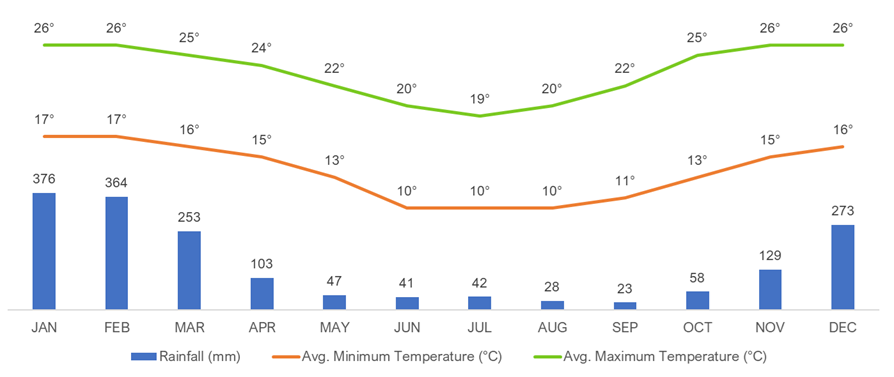
Getting There
You will need to book a flight that arrives at Antananarivo Ivato International Airport (TNR) on your project start date. A project representative will meet you in the arrivals hall before you take a private transfer to a nearby hotel for the night. We recommend booking flights that do not arrive too late in the evening so that you can attend the welcome dinner with your fellow volunteers.
On the final day of the project, you will be transferred back to Antananarivo, roughly a 3.5-hour drive. You should book a late afternoon or evening flight that departs after 2:45pm to ensure you have enough time. Alternatively, you can book a night in a hotel and fly the next day if there are better flight options, but this will be at an additional cost. We can recommend hotels that provide airport transfers.
Visa Requirements
You can enter Madagascar without a visa for a stay of up to 15 days, but an administration fee of €10 must be paid on arrival.
For longer stays of up to 60 days, a tourist visa is required. Except for citizens of Burundi and Palestine, all foreign nationals can obtain a tourist visa on arrival at the airport. An administration fee must still be paid, which is €35 for a 30-day visa and €40 for a 60-day visa. Additionally, your passport must be valid for at least six months beyond your entry date and contain at least two blank pages.
For stays of up to 90 days, tourist visas can be extended when you are in Madagascar, and the cost is approximately €50. You can also apply for a tourist e-visa before travelling.
Fitness & Skills
No specific skills or experience are needed to join; however, the project involves regular trekking through steep, uneven forest terrain, so a good level of physical fitness is needed to take part. Volunteers should be comfortable with active days and extended hikes in a remote environment.
Vaccinations
There are no specific vaccinations required to join this project; therefore, we recommend consulting your GP/doctor or a travel clinic and following their advice on vaccinations for travel. You can also find helpful advice and information on the Travel Health Pro website.
Gallery
News & Stories
NEWS | Jan 2026
Seeing a lemur in Madagascar can mean a fleeting glimpse… or an experience that stays with you for life. Not all lemur encounters are created equal, so here are the best places to see wild lemurs in Madagascar, and one that truly stands apart!
NEWS | Oct 2025
World Lemur Day isn’t just about lemurs; it’s about protecting the delicate balance of life on Earth. Join the movement this Halloween to celebrate, educate, and act for a wilder, more sustainable world!
NEWS | Sep 2025
Join us as we explore how lemurs made their way to Madagascar, evolving into one of the island’s most iconic species in today's blog!
What's Included
- Accommodation
- Arrival and departure airport transfers
- Transfers to and from Antananarivo to the field station
- Three meals per day
- Lemur Park visit
- A conservation donation to Wildlife Madagascar
- Tea, coffee and drinking water
What's Not Included
- All flights
- Vaccinations (if required)
- Visas (if required)























